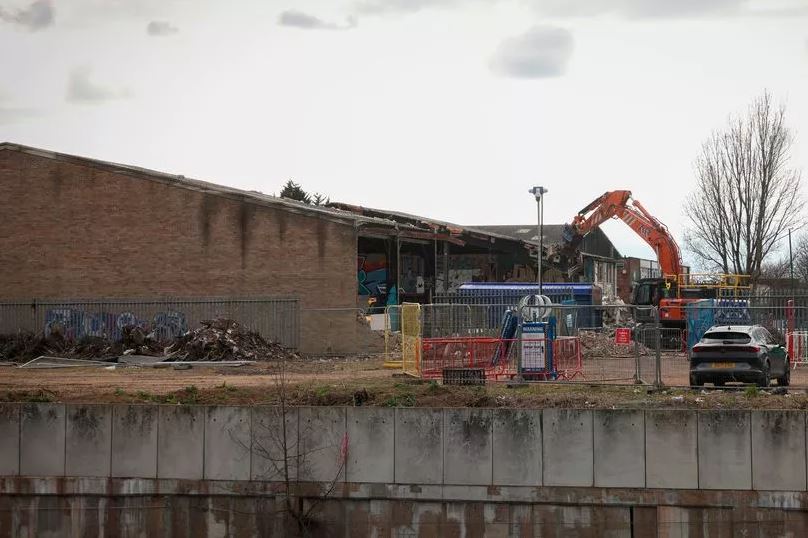
Nottingham’s skaters have been left without a place to ride after crews tore down Flo Skatepark to make way for the city’s first new bridge over the River Trent in more than 60 years.
The indoor park, once a home for skateboarders is now nothing more than rubble as work begins on the £18 million Waterside Bridge.
A pedestrian and cycling crossing set to connect Lady Bay in Rushcliffe with the Trent Basin housing estate near Sneinton and Colwick.
According to reports, the demolition teams have already cleared the warehouse that housed the park, with construction company Balfour Beatty preparing to move in by the end of the month.
The bridge, originally set to open in 2023, has faced delays and rising costs, but officials insist it will create safer routes for walkers, runners, and cyclists.
Starting in April, piles will be drilled into the ground to support the structure, with massive steel sections, manufactured by Hucknall-based Briton Fabricators Ltd, arriving later this year.
The bridge will be assembled on-site and lifted into place by crane in November, with final landscaping and finishing touches added before its expected opening in spring 2026.
City leaders claim the new crossing will improve links between Nottingham city centre, the redeveloped Island Quarter, and residential areas like West Bridgford.
They also argue that it will provide easier access to green spaces and sports grounds south of the river.
Despite the promises of improved infrastructure, the loss of Flo Skatepark has left a hole in Nottingham’s scene. For many, the park wasn’t just a place to skate—it was a community.
With no clear plans for a replacement, skaters now face an uncertain future, searching for new spots to keep their scene alive.
